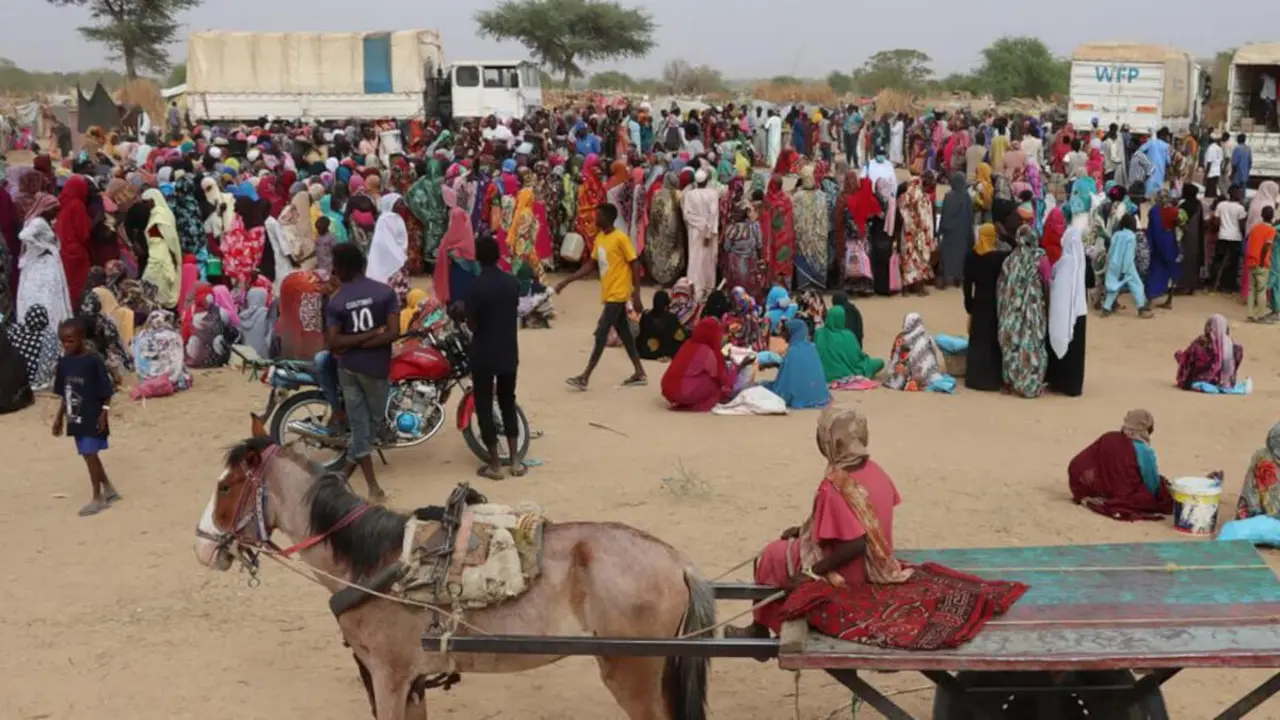Concern over the fate of thousands of migrants in Niger expelled from Algeria

Several thousand sub-Saharan migrants expelled from Algeria are currently stranded in a situation of extreme vulnerability in Assamaka, a small Nigerien village in the Agadez region (far north of the country), some fifteen kilometres from the Algerian border.
The regional authorities in Agadez estimate the number of these migrants stranded in Assamaka since the beginning of the year at 5,000.
In a joint report published this weekend, the UN Office for the Coordination of Humanitarian Affairs (OCHA) and the International Organisation for Migration (IOM, also part of the UN) describe "a humanitarian situation of great concern" due to the continuous arrival of new waves of migrants in the town.
"All these people are in dire need of water, shelter, food, medical and psychosocial support and are left to fend for themselves in the Sahara desert," the report says.
The IOM transit centre in Assamaka, which has a reception capacity of 1,000 places, currently houses about 1,500 migrants.
Priority is given to migrants with specific needs related to their age, gender, medical and mental health conditions and other risk factors, as well as to people who have suffered rights violations.
According to the IOM, some "3,600 migrants are currently outside the centre without assistance".
This influx of people, it says, has an impact on the towns of Arlit and Agadez, located 210 and 450 kilometres south of Assamaka.
"In the absence of help and hope, some have found the means to continue on to these distant towns to swell the number of migrants who have already arrived there in search of work or international protection," according to the IOM.
The report notes that regional authorities are organising to find solutions to decongest migrant transit centres in Assamaka, Arlit, Dirkou and Agadez.
The migrants stranded in Assamaka are predominantly from sub-Saharan Africa, with more than 90 per cent of them citizens of Economic Community of West African States (ECOWAS) countries.
Assessments conducted in recent months by IOM in Assamaka, which take into account the last migrants returning from Algeria at the end of March 2023, reveal crucial needs for urgent and life-saving assistance.
According to the findings, "the urgent needs identified are access to food, water, hygiene and sanitation, security and protection of children and the most vulnerable, medical and psychosocial support, shelter and non-food items including hygiene kits".
This is in addition to access to education and strengthening security and social cohesion among migrants and host communities.
IOM frequently organises convoys to decongest the city of Assamaka and relocate migrants to centres in departmental (Arlit), regional (Agadez) or national (Niamey) cities to improve the level of assistance and support migrants in taking their rights into account, the report notes.
"The number of migrants in Niger who sought assistance from the International Organization for Migration (IOM) increased by 35% in 2022, a year in which more than 17,000 migrants received assistance from the IOM," say the two UN humanitarian organisations, which warn that the number continues to rise in 2023.








